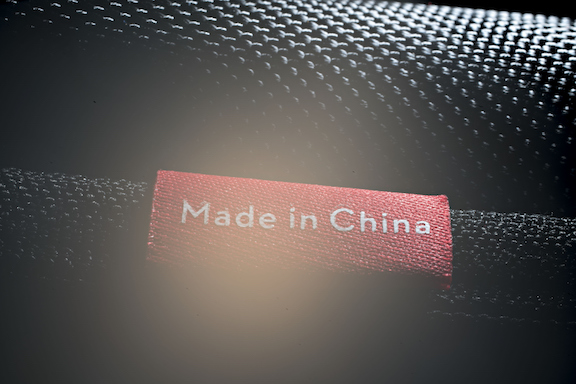Hong Kong denounces US ‘Made in China’ label demand to WTO
Hong Kong demanded the U.S. withdraw its pending regulation to label goods manufactured in the city as ‘Made in China,’ expressing its “strong objection” to the requirement at a meeting of the World Trade Organization.
Hong Kong’s permanent representative to the WTO made the intervention during a Tuesday session of the body’s general council, according to a statement posted to the website of the Hong Kong Economic and Trade Office in Geneva.
“Hong Kong, China expresses our strong objection to the revised origin marking requirement imposed by the U.S.,” said the representative Laurie Lo, according to the statement. “Should the U.S. fail to address our concerns over its revised origin marking requirement, Hong Kong, China is determined to defend its legitimate rights and interests in accordance with the dispute settlement procedure under the WTO.”

The city retains separate representation at the global trade body and has a separate customs jurisdiction from mainland China.
The U.S. responded at the meeting that it was reviewing Hong Kong’s concerns and would reply once its analysis was complete, according to a separate emailed statement from the Commerce and Economic Development Bureau.
The escalating dispute comes with Hong Kong a target for the U.S. amid its ongoing trade war with China. The city’s status as an Asian financial hub and its relationship with the mainland have been under increasing scrutiny, especially after the introduction of a national security law in the city by Beijing earlier this year in response to months of political unrest.
The U.S. government announced the labeling policy in August—marking imports from the city as “Made in China” rather than “Made in Hong Kong”—as a result of the U.S. action to revoke Hong Kong’s special trading status. U.S. Customs and Border Protection later pushed back the start date for the rule to November “in an effort to allow importers ample time to comply.”
The U.S. measure not only disregards the fact that Hong Kong is a separate customs territory with its own trade policies and origin rules, but it will also “impose unnecessary burden and difficulties to the business communities of both sides and cause confusion to U.S. customers,” Lo said.
Edward Yau, the city’s commerce and economic development secretary, said in August the demand was unreasonable and uncivilized.
Similar Stories

December 2024 U.S. Transportation Sector Unemployment (4.3%) Was the Same As the December 2023 Level (4.3%) And Above the Pre-Pandemic December 2019 Level (2.8%)
View ArticleDP World appoints Jason Haith as Vice President of Freight Forwarding for U.S. and Mexico
DP World, a global leader in logistics and supply chain solutions, has announced the appointment of Jason Haith as Vice President, Commercial Freight Forwarding – U.S. and Mexico, effective immediately.…
View Article
Amaero secures final approval for $23.5M loan from Export-Import Bank
View ArticleU.S. Bureau of Labor Statistics employment situation
Total nonfarm payroll employment increased by 256,000 in December, and the unemployment rate changed little at 4.1 percent, the U.S. Bureau of Labor Statistics reported today. Employment trended up in…
View ArticleImport Cargo to remain elevated in January
A potential strike at East Coast and Gulf Coast ports has been avoided with the announcement of a tentative labor agreement, but the nation’s major container ports have already seen…
View ArticleS&P Global: 2025 U.S. transportation infrastructure sector should see generally steady demand and growth
S&P Global Ratings today said it expects activity in the U.S. transportation sector will continue to normalize in 2025, with growth rates for most modes of transportation slowing to levels…
View ArticleGet the most up-to-date trending news!
SubscribeIndustry updates and weekly newsletter direct to your inbox!





